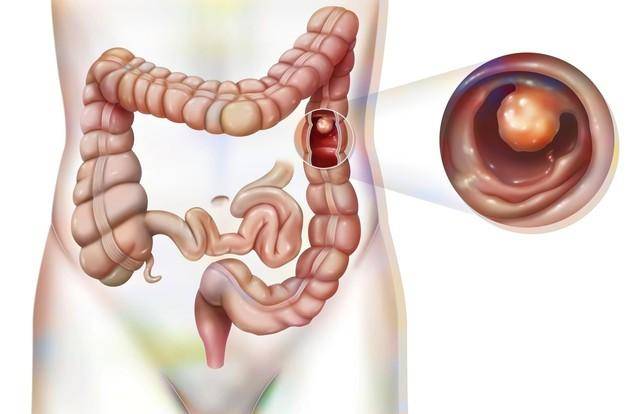Before reading this article, we invite you to click “Follow” to receive professional medical popular science knowledge every day, helping you and your family improve the quality of your healthy life. Thank you for your support!
We eat and drink every day, but do you know that some common foods we eat are actually the “nourishment” for intestinal polyps! Especially for friends over 35 years old, intestinal health should be given enough attention.
Today, let’s talk about these easily overlooked dietary habits and how they silently pose a threat to our intestinal health.
1. Relationship Between Unhealthy Dietary Habits and the Formation of Polyps
First, we need to understand what intestinal polyps are. Intestinal polyps, although the name may sound a bit like medical jargon, are actually small growths on the inner wall of the intestine.
Although most of the time they are benign, do not underestimate them, as these small things can sometimes turn bad and become precursors to colon cancer.
So, what causes these little guys to settle in our intestines?
High-fat foods. Foods like fried foods, fast food, pastries that look tempting actually contain a lot of saturated fat, which not only expands your waistline but may also stimulate intestinal cells to proliferate, forming polyps.
Processed meats. Sausages, hot dogs, cured meats, etc., contain nitrites and nitrosamines, which can transform into carcinogenic substances through a series of complex chemical reactions.
Red meat. Common meats like beef, lamb, etc. Although these meats are good sources of protein, they are also rich in cholesterol and saturated fatty acids. Excessive intake can also increase the risk of intestinal polyps.
2. Harms and Prevention of Intestinal Polyps
Now that we know how these foods can lead to intestinal polyps, let’s see if polyps are really that scary? The answer is yes. Although most intestinal polyps are benign, their risks cannot be ignored.
Polyps are like time bombs, ready to evolve into colon cancer at any time. Especially adenomatous polyps have a higher probability of malignant transformation.
To maintain intestinal health, we can adopt the following preventive strategies. First, eat more fresh fruits and vegetables. The fiber in fruits and vegetables can promote intestinal peristalsis, helping to remove toxins and waste from the body.
Secondly, regular check-ups are essential. Early detection of intestinal polyps and timely treatment can prevent them from worsening into colon cancer, thus improving survival rates.
Lastly, a healthy lifestyle is also an important way to prevent intestinal diseases. Regular exercise, maintaining a cheerful mood, staying away from bad habits all help maintain intestinal health.
3. Detection and Management of Intestinal Polyps
In the medical field, colonoscopy is the gold standard for detecting intestinal polyps. By inserting a flexible tube with a camera into the patient’s rectum and colon, doctors can visually observe the condition of the intestinal wall, promptly identify and determine the type of polyps.
Virtual colonoscopy, as a non-invasive detection method, uses CT scans to obtain detailed images of the colon, and is increasingly favored. While this method has a slightly lower detection rate for small polyps, more and more people are willing to undergo it due to its high comfort level.
Once polyps are found, doctors usually recommend polypectomy. Most polyps can be removed immediately during colonoscopy.
After removal, polyps are sent to the laboratory for pathological examination to determine their potential for malignancy. This step is crucial for determining follow-up treatment and monitoring strategies.
4. Importance of Early Detection
Why is early detection of intestinal polyps so important? Because during the development of colorectal cancer, intestinal polyps are in the early stage, providing a golden opportunity for intervention.
Studies have shown that timely polypectomy can significantly reduce the incidence of colorectal cancer. Therefore, early detection and treatment of these intestinal nodules not only can block their path to colorectal cancer but also significantly improve patients’ survival rates and quality of life.
In practice, in addition to regular colonoscopies, people should also pay attention to any abnormal symptoms in their daily lives, such as persistent abdominal pain, sudden weight loss, rectal bleeding, or significant changes in bowel habits. These may be signs of intestinal polyps and should be taken seriously and promptly checked by a doctor.
Finally, do you have any experiences or opinions to share? Feel free to leave a comment in the comment section!


